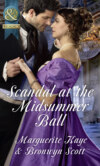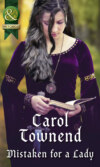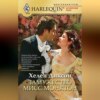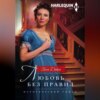Loe raamatut: «A Traitor's Touch»
Henrietta felt those eyes—felt them as powerful as a physical force, probing deep within her.
‘I think it is time we reached a clear understanding about what is happening between us.’
His words confused her. The dangers he posed to her senses and emotions were immense, yet the physical desire she felt for him continued to ache inside her. A small, insidious voice whispered a caution, reminding her that any liaison with Simon would bring her nothing but heartbreak, but another voice was whispering something else, telling her not to let the moment pass, to catch it and hold on to it.
Still she hesitated, for what she was contemplating went beyond anything she had ever contemplated before. All she wanted was for him to hold her again and to kiss her into insensibility.
AUTHOR NOTE
I thoroughly enjoyed writing A TRAITOR’S TOUCH, which is set in 1745–6 against the turbulent issues that beset both England and Scotland at that time. The climax of the story is the Battle of Culloden.
Dark family secrets, hidden hurts, desperation and undeniable love—all these and more appear in A TRAITOR’S TOUCH.
Beautiful, clever Henrietta Brody flees London to escape a ruthless murderer. With little more than the clothes on her back she sets off on a lonely, friendless road to the wilds of Scotland, determined to find her uncle. She enlists the aid of handsome Lord Simon Tremain—a staunch Jacobite whose values and loyalties to the cause are against everything Henrietta believes in.
While the battle of Culloden and the issues of the time are real, the characters—with the exception of The Bonnie Prince—are entirely fictional.
A Traitor’s Touch
Helen Dickson

HELEN DICKSON was born and lives in South Yorkshire, with her retired farm manager husband. Having moved out of the busy farmhouse where she raised their two sons, she has more time to indulge in her favourite pastimes. She enjoys being outdoors, travelling, reading and music. An incurable romantic, she writes for pleasure. It was a love of history that drove her to writing historical fiction.
Previous novels by Helen Dickson:
THE DEFIANT DEBUTANTE
ROGUE’S WIDOW, GENTLEMAN’S WIFE
TRAITOR OR TEMPTRESS
WICKED PLEASURES (part of Christmas By Candlelight) A SCOUNDREL OF CONSEQUENCE FORBIDDEN LORD SCANDALOUS SECRET, DEFIANT BRIDE FROM GOVERNESS TO SOCIETY BRIDE MISTRESS BELOW DECK THE BRIDE WORE SCANDAL SEDUCING MISS LOCKWOOD DESTITUTE ON HIS DOORSTEP MARRYING MISS MONKTON DIAMONDS, DECEPTION AND THE DEBUTANTE BEAUTY IN BREECHES MISS CAMERON’S FALL FROM GRACE THE HOUSEMAID’S SCANDALOUS SECRET* WHEN MARRYING A DUKE … THE DEVIL CLAIMS A WIFE THE MASTER OF STONEGRAVE HALL MISHAP MARRIAGE
*Castonbury Park Regency mini-series
And in Mills & Boon® Historical Undone! eBooks :
ONE RECKLESS NIGHT
Did you know that some of these novels are also available as eBooks? Visit www.millsandboon.co.uk
MILLS & BOON
Before you start reading, why not sign up?
Thank you for downloading this Mills & Boon book. If you want to hear about exclusive discounts, special offers and competitions, sign up to our email newsletter today!
Or simply visit
Mills & Boon emails are completely free to receive and you can unsubscribe at any time via the link in any email we send you.
Contents
Prologue
Chapter One
Chapter Two
Chapter Three
Chapter Four
Chapter Five
Chapter Six
Chapter Seven
Chapter Eight
Chapter Nine
Chapter Ten
Prologue
1734
On the discovery of a plot for the capture of the royal family and the proclamation of King James across the water, Andrew Brody was arrested with other malcontents and hanged at Carlisle. His body was brought home to Glasgow in a plain wooden box. To spare his wife and young daughter the sight of his blue and grotesque face, its tongue bulging from a rictus mouth, the lid was kept nailed down.
Maria, his wife, went mad with grief. She wept day and night and could not eat. She was terribly ill and there was no consoling her.
After two weeks, their seven-year-old daughter, Henrietta, went outside to look for her mother, thinking she might have taken a turn round the garden. When she failed to locate her she turned to go back to the house, but for some reason she did not fully understand herself, stopped and looked towards the river. Following a moment of indecision, she began to walk towards it. Perhaps it was to satisfy a sense of nostalgia, to recall happier times when the river had been a magical place. Or perhaps it was some other, darker sense that impelled her to get a closer look.
Whatever it was it led her along the bank of the gently swirling river. And that was when she saw a woman’s body floating face down in the water, her hair forming a rippling halo on the surface.
It was her mother.
Henrietta’s stomach lurched and she called her mother’s name and drew closer to the edge, hoping she was not too late, but knowing that she was. She turned and ran back to the garden.
‘Help me!’ she cried to the gardener raking up leaves into a heap. ‘My mother—she’s in the river. I don’t know what to do! Help me! Please help me!’
The gardener threw down the rake and ran towards the river, the girl following close on his heels. On seeing the body, he quickly assessed the situation. Wading into the water, he hauled his mistress onto dry ground and rolled her on to her back. He stared down at the lifeless form, at the woman’s face that was so white, but still beautiful in death.
The gardener looked up at the child. She stood like a small frozen statue, her eyes wide and filled with horror, and he could feel the agony coming off her, sense the torment twisting her soul like a weighted rope. Slowly she got down on her knees, staring into her mother’s bloodless face, her small hand smoothing her dark brown hair back from her forehead over and over again, whispering words the gardener could not hear.
The girl was remembering all the days spent with her mother, how they would sing and gossip. How nothing could touch them then. But now she was gone. The vivacious, spirited and delightful woman was gone. The girl told herself over and over again she would not see her mother again in life. But now she must not think of it, else she would lose her mind like her mother.
Eventually the gardener rose on stiff legs. ‘It would seem your mother has had an accident, Miss Henrietta,’ he said by way of explanation, while knowing otherwise. ‘I will carry her to the house,’ he said gently. The child did not look up, did not break the rhythm of her hand stroking her mother’s hair as she whispered tenderly, as though they two were the only people left on God’s earth. ‘I will be gentle with her, I promise, but I think we should take her home now.’
The gardener waited a while longer, watching a swan with three cygnets in her wake sail stately by. Then the child got to her feet. Her face glistened with tears and bewilderment filled her green eyes as though she was desperate to understand why her mother had left her.
‘Please don’t hurt her.’
Swallowing hard with a resolute nod, for one heartbreaking moment, the gardener looked down into the young face. ‘I won’t.’ And so, carefully, more carefully than he had ever done anything in his life, he bent and took the dead woman into his arms, trying not to look at her face as he carried her to the house.
* * *
The funeral coming so soon after her father’s interment was too much for the child. She drew in a breath of panic. She did not want to be there. She did not want to be afraid all the time—afraid of death. Her father’s brother, Uncle Matthew, came and took her in his arms.
Matthew shook his head in despair. Tears lit his eyes. He tried to explain. All this had happened because her father was a Jacobite. Matthew was of the opinion that men should be free to worship God as they chose, as long as they obeyed their king and did no harm by it. Tragically his brother had supported the wrong kind. The Jacobite cause had been his life. Even when he was condemned he saw his last journey to the scaffold as a veritable moment of glory, as though he were raised suddenly to celebrate for his good deeds, instead of hanged for his seditious acts against the Crown.
The girl could not get beyond the Jacobite word. This new knowledge of the circumstances surrounding her father’s execution, followed so quickly by her mother’s suicide, haunted her day and night. The anger and hate directed at the Jacobites entwined, swelling and blooming inside her, threatening to consume her body and soul. It was anger and hatred more acute and darker than anything she had ever known.
And then Uncle Matthew took her away—to London—putting as much distance between her and the event as was possible.
Chapter One
1745
Baron Charles Lucas and his wife Dorothy had embraced Henrietta in her hour of need and taken her into their lives and their home with the kind of easy, unconscious goodness that was born of good breeding and a happy life.
And now they were both dead. Along with their coachman, they had sustained fatal injuries in a carriage accident when they were travelling home from the theatre. Within the space of twenty-four hours, Henrietta was forced to grow up quickly and keep herself in control for the sake of the grieving servants. But beneath her calm exterior she endured a sickening and inevitable turmoil over the loss of the two people who had given her a sense of worth and for whom she had borne a real and unselfish love.
She closed her eyes as the enormity of their loss made her realise how alone she was and she knew she would have to consider wisely how to make the best of her circumstances and to think about her future. After considering the advantages his niece would reap in London, including learning everything a young lady should be cognizant of, Uncle Matthew had placed her in the hands of Baron Lucas and his wife Dorothy, her mother’s dearest friend. They had been delighted to become Henrietta’s legal guardians. She was the apple of their eye, the child they had never had.
Uncle Matthew was the only family Henrietta had. As a youth and being a scholar with much intelligence and curiosity, he had sought to quench his thirst for knowledge and had gone abroad to enrich his education. He had been gone some time. When he came home, expecting to be welcomed by his brother, he had found unexpected tragedy. Never having married and seeming to have a dislike for all society following the terrible circumstances of his adored brother’s brutal death, he’d acquired a crofter’s cottage close to Inverness and, surrounded by his precious books, become something of a recluse. Henrietta knew she could be sure of a warm welcome there.
But maybe she wouldn’t have to leave London. Dorothy had assured her that she would be well provided for. Henrietta remembered how the dear lady, who’d insisted she call her aunt, had smiled and said that Henrietta’s mother had been a good friend to her—as close as sisters they had been—and that she honoured her memory in the best way she knew by honouring and taking care of her daughter to the best of her ability.
Remembering this, Henrietta swallowed and set her jaw.
Hearing carriage wheels on the gravel drive, she glanced out of the window. Her heart sank. It was dark, but she could see by the carriage lamps that her guardians’ nephew, Jeremy Lucas, had arrived at Whitegates to claim his inheritance. Followed by his wife, Claudia, he breezed through the great entrance hall and into the salon where Henrietta was sifting through some correspondence, mainly letters of condolence from friends of the elderly couple.
The moment Jeremy entered the room with his wife flouncing after him the atmosphere thickened with tension. Tall and lanky and fashionably attired without prudence, he walked with a swagger as if he owned the world. He was a popular, much sought-after figure about town and could be charming when the occasion demanded it, but Henrietta had seen the cold, cunning heart behind the charm. He was inclined to call at the house unannounced. The last time had been the day after the accident. He hadn’t seen fit to turn up for the funeral which had been a mere twenty-four hours ago.
Henrietta rose, smoothing down her black skirts as she turned to face him. Jeremy felt a deep resentment towards her and had never made any attempt to disguise the fact.
‘Jeremy! You were not expected. However, you are welcome.’
While his mind noted the young woman’s perfunctory courtesy to him, his mind catalogued the valuables in the room. ‘I should damned well think so since it’s my house.’ His eyes gleamed overbright as he strutted like a well-preened rooster on the oriental carpet, eyeing and fingering precious heirlooms he had coveted for years.
Henrietta’s face tightened with the effort of holding back a sarcastic rejoinder. She braced herself for what was to come, for after her dealings with this man in the past she knew it was not going to be pleasant. She glanced at Rose hovering in the doorway, a pensive look creasing her round face.
‘Is everything all right, Miss Brody?’ she enquired, glancing nervously at the visitors.
‘Yes, thank you, Rose.’
Rose stepped back, but was not out of sight. Her faithfulness to her mistress remained as strong as the time when she had come to live with Baron Lucas and she had long ago proven her confidante in the most troubling times.
‘Bring us some refreshment, will you, Rose?’
The maid bobbed a curtsy and hurried away.
Henrietta and Jeremy Lucas were isolated enough that they could converse in private in the salon, yet the servants were still close enough that Henrietta did not feel as if she was under any threat. It was indicative of her mistrust of Jeremy that she even thought of such things—that she was actually considering herself to be in possible danger in her own home.
‘The servants are disrespectful,’ Jeremy informed her as he sat down heavily on a chair, stretching his long legs out in front of him, unconcealed malevolence in his pale blue eyes as they swept insolently over her. ‘But no matter. I have not come here to discuss something that can be replaced.’
Henrietta stiffened, all her senses alert. ‘Replaced? What are you talking about?’
‘Servants are two a penny. Now I’ve come to take up residence, if any of them want to remain they must know their place.’
‘Quite right, Jeremy,’ Claudia piped up in her shrill voice. ‘You show them how you mean to go on from the start and that you’ll stand for no interference from them.’
Henrietta looked at Jeremy’s wife. During several visits, Henrietta’s red-gold tresses had incensed the hard-faced virago, causing Claudia to berate the whole Scottish race as being slow-witted and to demean Henrietta as a heathen, a derogatory appellation many an English Protestant was wont to lay on the Roman Catholics.
True to form, Claudia was gaudily attired, her generous assets amply displayed. She wore too much powder and paint for good taste. Her dark hair was piled high on her head and a black patch dotted her cheekbone. With her nose tipped disdainfully high, her hazel eyes hostile, Claudia gave her a haughty smile as she doffed her gloves and tossed them aside. Prowling slowly about the room, her skirts swishing in her wake, she trailed well-manicured fingers across polished surfaces, lingering on a valuable figurine while eyeing other knick-knacks as if to assess their value.
‘If you have come to discuss the will, Jeremy,’ Henrietta said, trying to hide her aversion to the man, ‘the solicitor is coming tomorrow.’
‘I am aware of the contents, Henrietta. I called on Braithwaite earlier. As you know, Braithwaite has had the honour of being the family solicitor for the past ten years—’
‘Who has been absent—America, I believe—for the past two years,’ Henrietta pointed out.
‘I am aware of that, but he has recently returned,’ Jeremy retorted, irritated by her interruption. ‘He made up my uncle’s last will and testament.’
‘Which you are telling me he has made privy to you. Clearly there has been some mistake and your uncle had not informed you—’
‘Be quiet,’ Jeremy snapped, shoving himself out of the chair and glaring down at her, his long, ungainly body quivering like a snake about to strike. ‘I’m not interested in what you have to say. My uncle kept a copy of the will, which I will find in his study when I go through his papers—and which I intend doing this very night. But understand this, Henrietta Brody. Everything has been left to me. The house, the money—everything—and I aim to take immediate possession.’
A feeling of alarm began to creep through Henrietta. She had never discussed such matters with her guardians. Indeed, there had been no reason to do so. But she knew they had cared for her and would not have been so unconcerned for her that in the event of their demise they would have failed to make provision for her future. She had certainly not expected much, but she could not believe they would have overlooked the matter.
‘You were not included,’ Jeremy went on. ‘But then why you should think my aunt and uncle should have left you anything at all defeats me. You were not a relative. You were nothing to them.’
‘Jeremy’s right,’ Claudia’s shrill voice piped up. Catching Henrietta’s look of disdain, she bristled. ‘And don’t look at me like that. Jeremy will wipe that smirk off your face when he sends you packing. You think you’re better than me, don’t you, you stuck-up Scottish witch—you and your high-handed ways. Well, you’re wrong. You’re not fit to clean my shoes.’
Even after enduring the loss of her guardians and Jeremy’s cruel words, Henrietta refused to yield to Claudia that very thing she craved most—an undeniable feeling of superiority. Highly offended by his words, though her anger and animosity rose up within her, she forced herself to remain calm. ‘I do not believe that and I was certainly not expecting anything of value. Having lost both my parents and being alone in the world, I was extremely grateful when they welcomed me into their home. I was deeply devoted to your aunt and uncle and I know that over the years they grew attached to me. Your uncle was a methodical man about his affairs and I cannot believe that when the situation changed and my own uncle made him my legal guardian he would not have made provision for me—at the very least to give me time to vacate the house when you took possession.’
Jeremy smirked. ‘Well, he didn’t,’ he bit back, thoroughly enjoying putting her in her place. ‘I expect they were fed up with you mooning about the house and hoped to marry you off before their demise. Just who do you think you are? A lady?’
‘If you knew your aunt and uncle at all, you would not have said that. They were good, kind people and would not brush people off so easily—especially those they cared about.’
Jeremy reached out and jerked Henrietta’s face around, his long, clawlike fingers bruising her tender flesh. ‘Where you are concerned they appear to have done just that. I own this house now. I am master here and as soon as the will has been read I want you out of it.’ Removing his hand, he thrust her away.
Henrietta stared at him. She was now certain that he was not aware that his uncle had executed a new will, let alone changed his solicitor. It didn’t augur well for the future. Displeased with the way Mr Braithwaite conducted his business—he was not a man noted for his discretion—both his uncle and aunt agreed that Mr Goodwin, a barrister in the city, was a man of probity, wisdom and common sense in equal proportions. She was surprised that Mr Braithwaite, who was a close friend of Jeremy’s, had failed to mention it. Although why on earth he should not have done when he had nothing to gain by not doing so she could not imagine. She was on the point of informing Jeremy herself but when he began bearing down on her once more, his cold eyes conveying to her that if he became vexed or angry enough he would have her forcibly removed, her mouth went dry.
Recognising her fear, Jeremy felt a surge of power. He laughed, a thin, cruel laugh that chilled Henrietta. ‘You, Miss Henrietta Brody, have been a drain on this family for too long, playing on my aunt and uncle’s goodwill when they took you in, living in the grand manner you think is your due. You have got above yourself. Enough is enough, I say, so pack your bags and be ready to leave as soon as Braithwaite has read the will.’
‘That’s right, Jeremy. You tell her straight,’ Claudia quipped while running her fingers appreciatively down the thick damask curtains and eyeing the crystal chandelier and Turkish carpet beneath her feet. ‘Nothing but a beggar—an upstart she was. She doesn’t belong here—never did. It’s time she was put in her place.’
Henrietta thought that was comical coming from her. Hadn’t Jeremy plucked her off the stage in Drury Lane? She would have laughed out loud had the situation not been so serious.
‘She will be, my love. I guarantee it.’ Jeremy looked Henrietta over, noting her trim figure, with its tiny waist, her prim beauty, the red-gold of her hair and softly rounded curves beneath her mourning dress. As much as he had intended exacting revenge on his uncle’s ward, with her proud head elevated to a lofty angle and her eyes blazing defiance, as much as he might have wished otherwise, it was blatantly obvious that Claudia suffered badly in comparison.
‘You cannot do this,’ Henrietta said. ‘I beg you to reconsider.’
‘I suppose I could—for a price.’
‘Now don’t you go making any bargains with her, Jeremy,’ his wife chided. ‘She’s going and that’s final.’
‘I suppose something could be worked out between us,’ Jeremy said, his gaze dwelling on a rounded breast, giving no indication that he had even heard his wife.
Henrietta shrank as she felt the weight of his stare. She could feel his eyes burning into her flesh through the fabric of her dress. Her heart pounded and she looked up at him, suddenly wary. His eyes held a hard, predatory gleam and a confident smile stretched his thin lips that made her skin crawl. His thoughts were the kind a decent young lady would not invite.
‘Of course there is the matter of your guardianship to consider, Henrietta. It cannot be overlooked. As the legal ward of my late uncle, I expect the responsibility has fallen on me. In which case I have legal ownership of you. You must obey me. Obviously you have not yet come of age whereby you can make lawful decisions on your own. I am duty-bound to provide for you.’
It was the smugness of his expression which finally brought Henrietta’s senses to life. ‘I am not your ward,’ she retorted, seething at his arrogant assertion. ‘I do not believe there is the mention of any guardianship being transferred to you in any will. A moment ago you were prepared to throw me out on the street. That was hardly an act of solicitude.’
Jeremy’s eyes became less threatening. ‘I acted a tad hastily, I admit. As I said, I will allow you to remain for the time being—’
‘But for a price,’ Henrietta said, cutting him short, incensed by what he was suggesting. ‘How dare you insult me so? To have made such suggestions at all is disgusting, but to make them in the presence of your wife is doubly so. How dare you come here prancing about like some arrogant lord, you graceless fop? I would rather take my chances on the streets than remain here with you and your wife. I would rot first.’
Jeremy’s eyes flared as her insults hit their mark. His face darkened to a motley red. ‘And you will. I’ll see to that, I promise you,’ he flared, his whole body shaking with rage. ‘Now go to your room and don’t come down again until I give you permission.’
There was a warning in his voice which sent a shiver of fear through Henrietta. She backed away. ‘Most willingly.’
She turned on her heel, leaving the room as two maids came in carrying trays laden with a silver tea service, fine china and a plate of sweet delicacies to tempt the palate.
She was halfway up the stairs when, having second thoughts, she decided to return to try again to inform Jeremy about his uncle’s change of solicitor. The door was ajar and she paused, steeling her nerves for further confrontation, but on hearing Claudia’s shrill voice she remained where she was.
‘I thank the Lord she’s going. She couldn’t continue living here.’
‘Don’t worry, my love,’ Jeremy said, biting into one of cook’s delicious iced cakes, scattering crumbs down his fine silk waistcoat. ‘You won’t have to put up with her for long. Henrietta Brody no longer has any place here and, as soon as the will is read, one way or another she will cease to exist.’
‘It’s a pity we failed to get rid of her along with the old fools. But then we must be thankful that everything went off as we hoped, better even since they had the sense to die and leave you everything.’
‘It had to be done. I couldn’t wait any longer. With creditors baying at the door, it was either that or the debtors’ prison.’ A sudden vision of himself locked in a filthy prison cell at the mercy of other prisoners and the guards flashed into Jeremy’s mind’s eye. It was a vision that had haunted him too much of late for comfort. ‘It’s not too late for Henrietta Brody. I vow I’ll see her hanged before I let her touch an object or a penny of what’s mine.’
Henrietta listened in amazement and shock to this eruption of venom. Horrified, she saw at last the cynical calculation of these two, who had coolly set about playing on her guardians’ goodness and her own innocence. Even more than their revelation was the contemptuous way this creature who was Jeremy’s wife dared to speak of her guardians’ memory that roused her anger.
‘Not only that, the girl’s a papist, isn’t she?’ Claudia added with scorn. ‘They’re likely to stab one in one’s bed with the smallest hint of an uprising. Don’t forget what happened to her father.’
Having heard enough and horrified at what their words implied—that they had been responsible for the death of her guardians and that she would have suffered the same fate had she not pleaded the onset of a cold, which had prevented her attending the theatre that night—Henrietta backed away from the door and, turning quietly, made her way to the baron’s study. The desk where he kept his private papers was locked, the key kept in a drawer in a separate bureau, although the deeds to the house and other important papers he kept with Mr Goodwin.
Opening each drawer in the desk in turn, she sifted through some household accounts until she found what she was looking for. Jeremy was right. There was a copy of the will, but it was the recent will drawn up by Mr Goodwin. Hearing Jeremy leave the morning room and cross the hall to the kitchen where he proceeded to bark orders at the staff, clutching the will in her trembling hand, gingerly she closed the study door. Afraid of making a sound, stealthily she tiptoed across the hall and flitted up the stairs to her room.
With shaking hands she opened the copy of the will and scanned what was written. She read enough to know that if she valued her life she must get away immediately. As Baron Lucas’s sole heir it was natural that Jeremy would expect to inherit his entire estate, but he had excluded Jeremy in favour of her.
Caught in a nightmare, she realised she was completely alone, at the mercy of demons that were intent upon destroying her. Who was to know what Jeremy would be tempted to do if he found out she had knowledge of the terrible crime he’d committed, one he would hang for? And on the morrow when he discovered his uncle had changed his solicitor and made a new will, leaving her everything, the knowledge would elicit terrible repercussions from Jeremy and she was not strong enough to stand against him.
Briefly she considered throwing herself on the mercy of her guardians’ friends, but dismissed this immediately. Jeremy had always been a golden boy and, because of the shocking events in her family’s background, they had quietly resented the position she had acquired in the Lucas household. No one would believe the conversation she had overheard between Jeremy and his wife and that he had murdered his uncle and aunt to get his hands on their money to keep him out of debtors’ prison. It would be her word against his, and were she to seek out Mr Goodwin, he would ensure the inheritance came to her, but he would never believe she was under threat from Jeremy.
So, with no one to whom she could turn to for help and with only herself to rely on, knowing that if she was to save her neck she had to do something, she acted on pure instinct. She would not be beaten. She would not sit and wait for Jeremy to destroy her with the same vicious cunning as he had his aunt and uncle. She had to get away and get away with all speed.
A concerned Rose followed her into her room, where Henrietta lost no time in telling her what had occurred and that she must leave the house with all haste. That Jeremy and his wife had admitted to killing her guardians she kept to herself. The fact that Jeremy could have done something so horrendous was difficult for her to take in, but if he could take the lives of his own flesh and blood without a qualm, he would not turn a hair in getting rid of her.
Tasuta katkend on lõppenud.




























